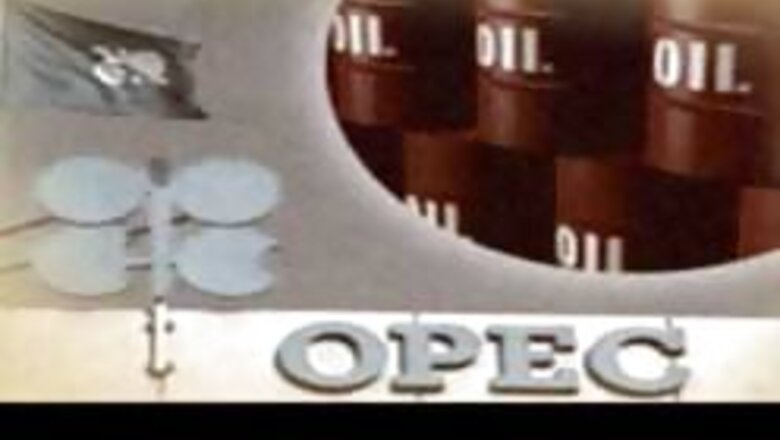
views
New Delhi: The President of Organisation of Petroleum Exporting Countries (OPEC), Chakib Khelil insisted on Tuesday that oil producers saw no need to raise supply, blaming high prices on factors outside its control, such as US pressure on Iran and the weak US dollar.
Speaking after talks with European Union (EU) nations, Khelil said the cartel of oil states believed it was pumping enough oil to supply current demand and had stocks and extra capacity to spare.
Oil prices rose above $138 a barrel during trading on Tuesday, less than $2 away from crude's trading record on the faltering dollar, Middle East tensions and concerns over supply disruptions out of Nigeria.
Khelil said prices in the next few weeks depended largely on how the US dealt with Iran and the strength of the dollar.
"I think the market is probably waiting to see how the dollar is going to evolve in July; how the geopolitical situation is going to evolve with the threats made on Iran," he said.
"If you can answer those questions, I can answer the question concerning the price," he told reporters at a news conference in Brussels.
Khelil also blamed high prices on the US subprime crisis when banks became fearful last August of lending to each other when complex investments based on US housing loans to people with poor credit emerged as far more risky than was at first believed.
"I think the fundamentals of the high price are due basically initially to the subprime crisis in the United States. That's where it all started," he said.
Comparing oil prices in 2008 with 2007, Khelil said they started to diverge in August when the US subprime crisis began to bite, leading to a weaker dollar.
He also pointed the finger at traders for turning to commodity markets, such as oil, when they could not find good returns in areas such as currency exchange.
Trying to predict the price of oil at the end of 2008 was, Khelil said, "the 60-million-dollar question."




















Comments
0 comment